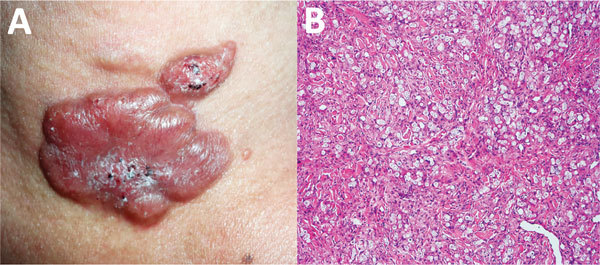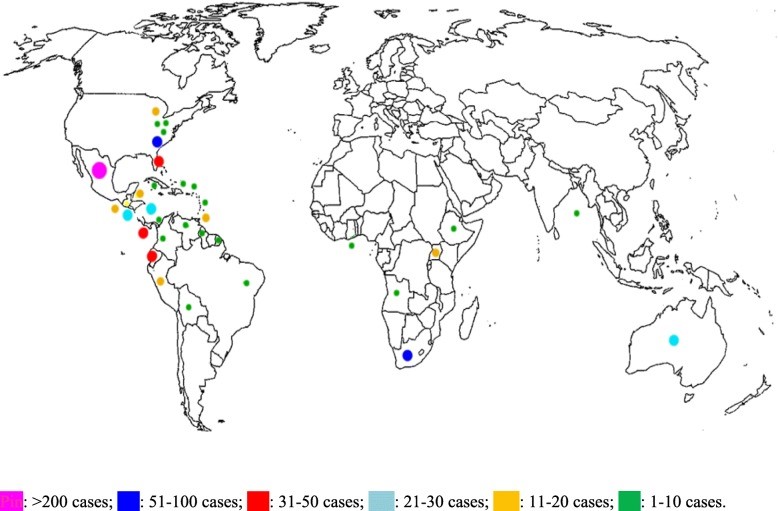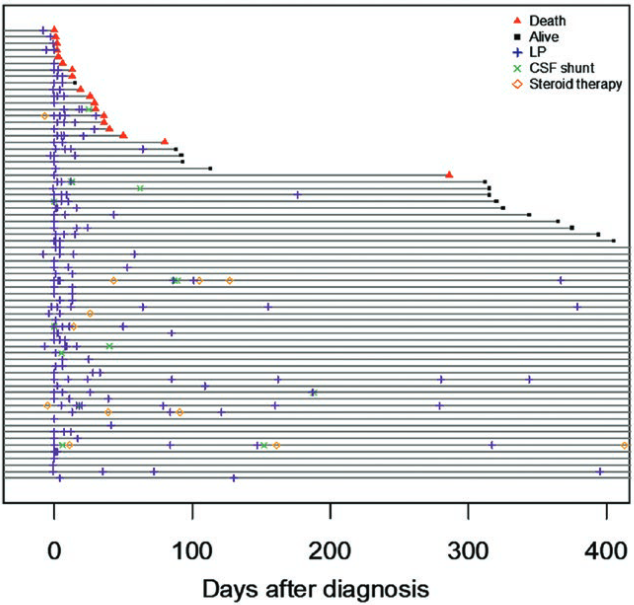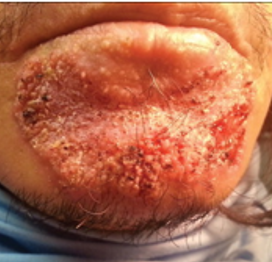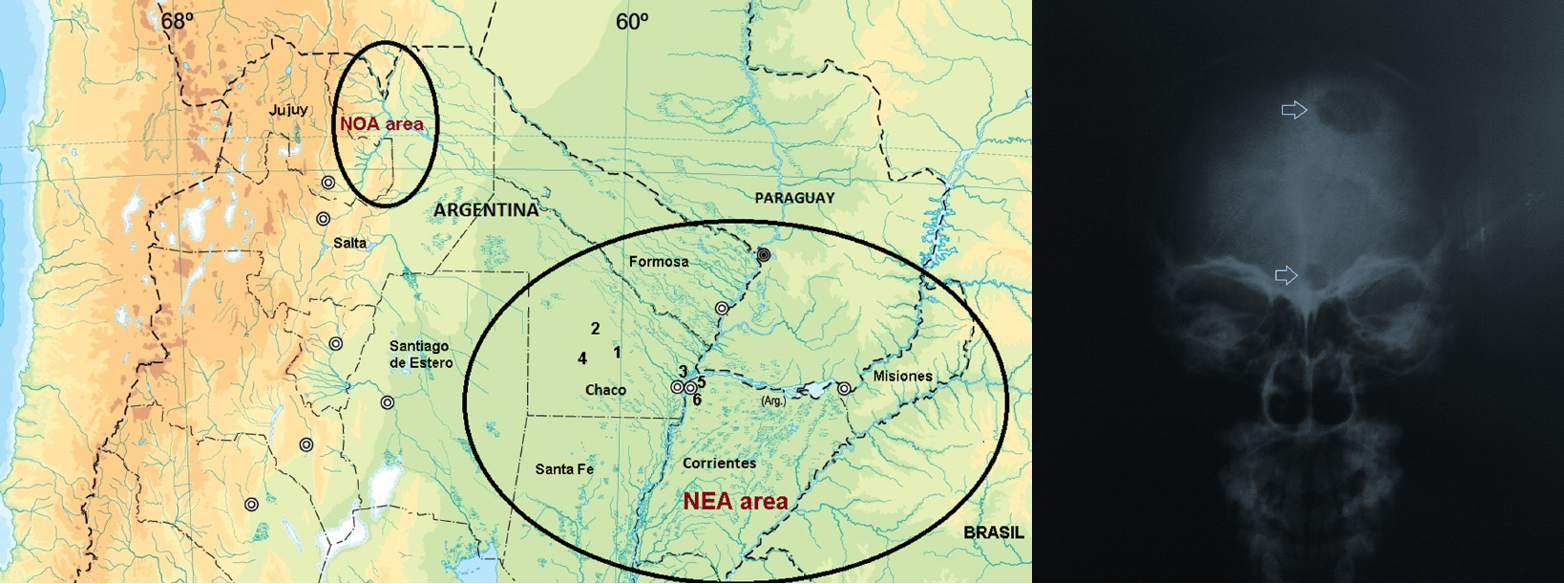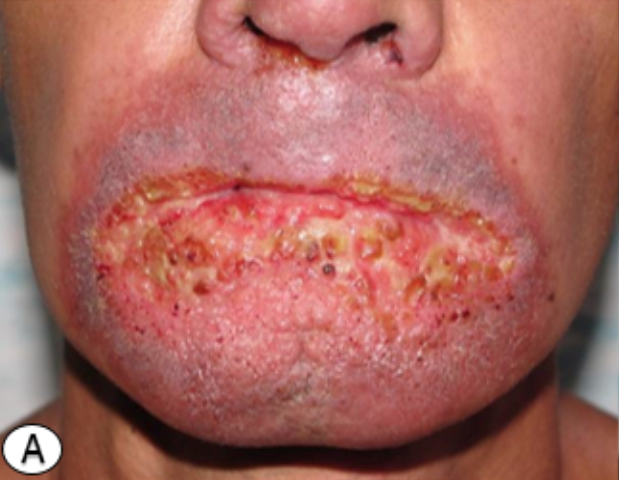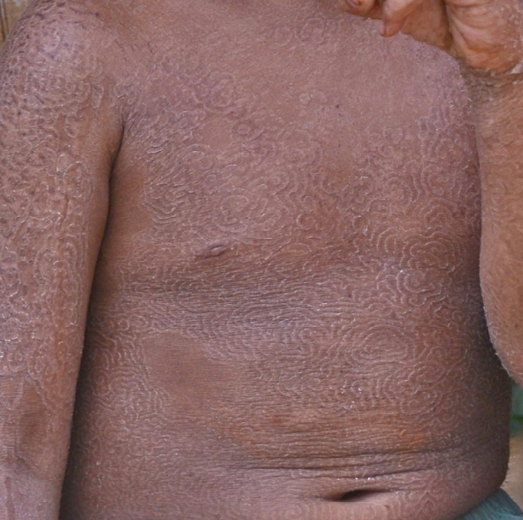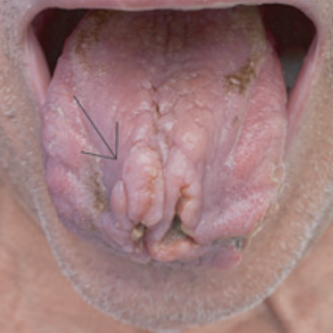Lobomycosis (AKA lacaziosis) is an implantation mycosis endemic to the Amazon basin, caused by Lacazia loboi. Nodular keloid lesions grow slowly and can cause disfigurement. Biopsy of lesions shows many thick-walled yeast cells forming chains, which may co-occur with other infections (e.g. leprosy, leishmaniasis) or squamous cell carcinoma.
Suspect histoplasmosis in returning travellers from an endemic area presenting with fever and cough
Histoplasmosis can present in a variety of ways, making it difficult to diagnose. Dr Staffolani and colleagues carried out a systematic review of 835 cases of histoplasmosis (including 45 clusters) from the literature, among immunocompetent patients who had recently returned from an endemic area. Manifestations included fever (91%), cough (55%), constitutional symptoms (58%), headache (52%) and chest pain (41%).
WHO adds Histoplasma antigen test to their Essential Diagnostics List
The World Health Organisation has updated its Essential Medicines List to the Histoplasma antigen test, which can be used on urine to diagnose histoplasmosis in 48 hours. Rolling out this test worldwide could save up to 48,000 lives in 5 years.
Cryptococcosis in HIV- patients show atypical presentation, leading to delayed diagnosis
Cryptococcosis is well known as a complication of HIV/AIDS, but it can also affect those who are immunosuppressed for other reasons. Dr Marr and colleagues describe a set of 138 patients from the US. Around half (49%) had CNS involvement but only just over a quarter (27.8%) had a fever.
Blastomycosis mortality raised by ARDS and immunocompromisation
Blastomycosis is a rare fungal infection caused by inhaling spores of the fungus Blastomyces dermatitidis
Cluster of paracoccidioidomycosis cases in children in Argentina during the 1982-3 El Niño anomaly
Serious systemic paracoccidioidomycosis infections are often associated with men working in agriculture. Dr Guisano and colleagues describe a cluster of six cases in children in the NEA area of Argentina that occurred during the 1982-3 El Niño Southern Oscillation climatic anomaly, and suggest that climatic and anthropogenic changes may have played a role
Paracoccidioidomycosis in South America should be a Neglected Fungal Tropical Disease
Paracoccidioidomycosis (PCM) should be listed as a Neglected Tropical Disease (NTD) according to GAFFI.
Tinea imbricata: a rare superficial mycosis
Tinea imbricata is a chronic superficial mycosis caused by the fungus Trichophyton concentricum. A recent case report by Dr A Leung and colleagues describes a case of tinea imbricata in an 8 year old Malaysian boy.
Oropharyngeal histoplasmosis: a manifestation of disseminated disease
Histoplasmosis is a fungal infection endemic to areas of Central America and Midwest USA. Most people develop a mild form of infection and are asymptomatic; if symptoms do occur they are usually flu-like, but can vary greatly. In a few, usually immunosuppressed, patients the disease can progress to life-threatening, disseminated histoplasmosis. Dr Thais Pincelli and colleagues recently reviewed all 10 cases of oropharyngeal histoplasmosis identified over a 21 year period at the Mayo Clinic in Rochester, Minnesota.
Rapid qPCR detection of a wide range of Coccidioides clinical specimens: has culture had its day?
An evaluation of a qPCR test for Coccidioides showed good sensitivity (74%) and specificity (100%), and produced results within 4 hours – outperforming fungal culture.

